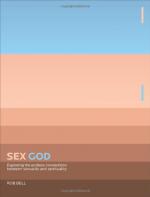|
This section contains 5,352 words (approx. 18 pages at 300 words per page) |

|
The theme of human sexuality lies behind much of the most significant, influential, and revolutionary theorizing of the modern study of religion. From Jean-Martin Charcot's early speculations on the remarkable similarities between female hysteria and traditional forms of religious rapture to Sigmund Freud's reflections on the culturally and personally defining mechanisms of Oedipal desire and the sexual dynamics of dreams, literature, and religious phenomena and from the radical ethical critiques of the patriarchal dimensions of these same motifs within nineteenth- and twentieth-century feminist theory to the latest transformations of this ethical-critical discourse within contemporary queer theory, gender studies, and trauma theory, human sexuality, as Michel Foucault so famously observed, has become a central preoccupation of critical thought and is now commonly approached as "the secret" of human identity and behavior, including—and especially—religious identity and behavior.
Certainly such an approach needs...
|
This section contains 5,352 words (approx. 18 pages at 300 words per page) |

|


![View Sexuality An Overview [first Edition]](https://d22o6al7s0pvzr.cloudfront.net/images/bookrags/aero300/content/btn_prev.png?1706062909)

